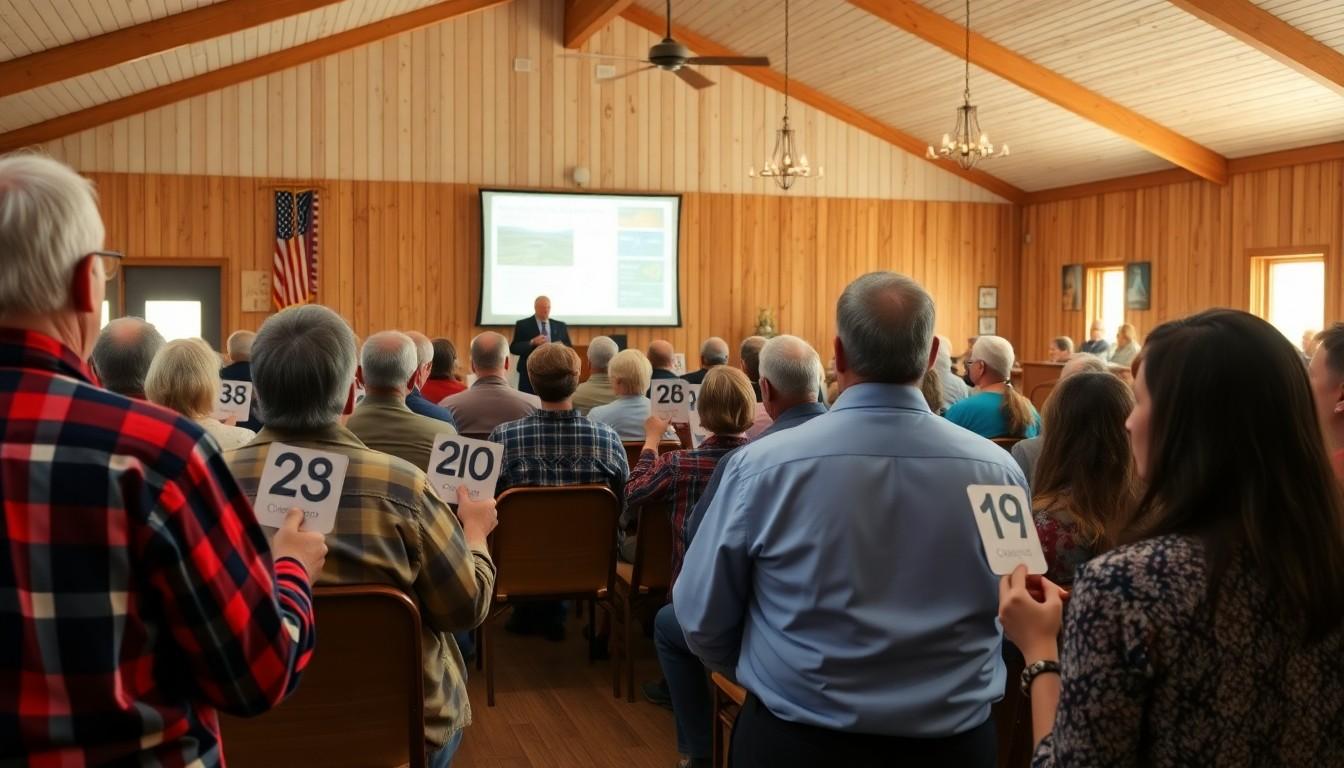In the world of real estate, rural tax lien properties might just be the hidden gems waiting to be discovered. Picture this: a sprawling piece of land, fresh air, and the sweet sound of silence, all while snagging a deal that’s as enticing as grandma’s secret cookie recipe. These properties offer investors a unique opportunity to dive into the real estate pool without needing to swim with the sharks in urban markets.
But wait, there’s more! Investing in rural tax lien properties isn’t just about the land; it’s about the adventure that comes with it. From navigating the tax lien process to uncovering potential treasures, this journey can be both profitable and entertaining. So grab your boots and get ready to explore the charm of rural investments, where the only thing more rewarding than the returns is the stories you’ll collect along the way.
Rural Tax Lien Properties
Rural tax lien properties present unique investment avenues in the real estate landscape. They combine affordability with the opportunity to acquire land situated in tranquil surroundings.
Definition and Importance
Rural tax lien properties refer to parcels of land where local governments sell tax liens to recover unpaid property taxes. These sales usually occur at public auctions, allowing investors to bid on the liens. Purchasing a tax lien grants the investor the right to collect owed taxes plus interest from the property owner. Importance lies in the potential for gaining property ownership if the delinquent taxes remain unpaid over a set period. Investors often find this process crucial for diversifying their portfolios and capitalizing on less competitive markets.
Potential Benefits of Investing
Investing in rural tax lien properties offers several potential benefits. Firstly, investors can acquire land at significantly lower prices compared to urban settings. They might also enjoy higher interest rates on the tax liens, yielding profitable returns. Moreover, investing in these properties can lead to eventual ownership if the taxes remain unpaid. Tax lien investments often involve lower competition, allowing investors to secure valuable parcels with ease. Accessing serene landscapes and natural beauty enhances the appeal further, making this investment avenue enticing for those seeking both financial gain and personal satisfaction.
How Rural Tax Lien Properties Work

Rural tax lien properties operate through a structured process that offers unique opportunities for investors.
The Tax Lien Process
Local governments sell tax liens on properties to recover unpaid property taxes. First, property owners receive notice of delinquent taxes; this initiates the lien process. Once taxes remain unpaid, the municipality places a lien on the property, granting the government the right to collect overdue amounts plus interest. Investors can then purchase these liens during public auctions. Tax lien holders can collect interest on the delinquent taxes, potentially ranging from 6% to 36% depending on state laws. Should property owners fail to pay their debts within a prescribed period, investors gain the chance to take ownership of the property, transforming this risk into a valuable asset.
Bidding on Tax Liens
Bidding on tax liens occurs at public auctions, creating a competitive environment. Participants register to bid and review the available liens, considering factors like location, property value, and outstanding tax amounts. Each investor must establish a maximum bid based on their risk tolerance and potential return. Successful bidders purchase the lien, securing rights to collect taxes and interest. Some properties may attract fierce competition, while others receive minimal attention, making strategic bidding essential. Successful investments typically yield substantial interest or even ownership of the property, encouraging investors to engage actively in future auctions.
Risks Associated with Rural Tax Lien Properties
Investing in rural tax lien properties carries specific risks that require careful consideration. Understanding these risks helps investors navigate potential challenges effectively.
Common Pitfalls for Investors
Investors often overlook due diligence. Failing to investigate property conditions can lead to unexpected repairs. Not all properties are in desirable locations; some may have limited access to essential services. Misjudging the value of a property is another common mistake, where the market price might not align with investor expectations. Additionally, investors might neglect researching local zoning laws, which could restrict intended uses of the land. Compounding issues arise from improper bidding strategies. Overbidding in auctions might result in financial losses rather than gains.
Market Fluctuations and Their Impact
Market fluctuations significantly affect rural tax lien properties. Economic downturns can lower property values, reducing profitability for investors. When demand for rural land decreases, it can lead to longer holding periods and increased costs. Interest rates on tax liens may also fluctuate, impacting overall returns. Changes in local economies can affect the rate of tax delinquency, influencing the availability of liens. Lastly, market dynamics can alter the competition level at auctions, placing pressure on bidders to reconsider their strategies and bids. Keeping an eye on these economic factors remains crucial for achieving investment success.
Tips for Investing in Rural Tax Lien Properties
Investing in rural tax lien properties requires careful planning and consideration. Here are some key areas to focus on when making investments.
Researching Properties
Understanding property conditions is essential before making a purchase. Inspect parcels of land for accessibility, utilities, and natural features. Verify the property’s tax status since unpaid taxes indicate potential liens. Use online databases and local government resources for comprehensive records. Assess demographic trends and future growth potential in the surrounding area. Seek feedback from local real estate professionals for additional insights. Gathering this information enables informed decision-making and boosts investment success.
Legal Considerations
Navigating the legal landscape is crucial in rural tax lien property investments. Be aware of state-specific laws governing property liens and seizure processes. Clear understanding of local zoning ordinances helps prevent complications after acquiring a property. Review past tax records to identify any existing liens or assessments on the property. Consult with real estate attorneys for guidance on compliance and legal rights. Ensuring all legal matters are properly addressed safeguards investments against unforeseen risks. Prioritizing these legal factors enhances the likelihood of a successful investment.
A Path to Smart Investment
Investing in rural tax lien properties presents a unique opportunity for those looking to diversify their portfolios. The blend of lower acquisition costs and the charm of serene landscapes makes this market appealing. However, success in this venture hinges on thorough research and understanding of the associated risks. By approaching investments with diligence and leveraging local resources, investors can navigate the complexities of the tax lien process. With the right strategy and knowledge, rural tax lien properties can serve as a rewarding investment avenue that not only promises potential financial returns but also offers the chance to enjoy the tranquility of rural living.

